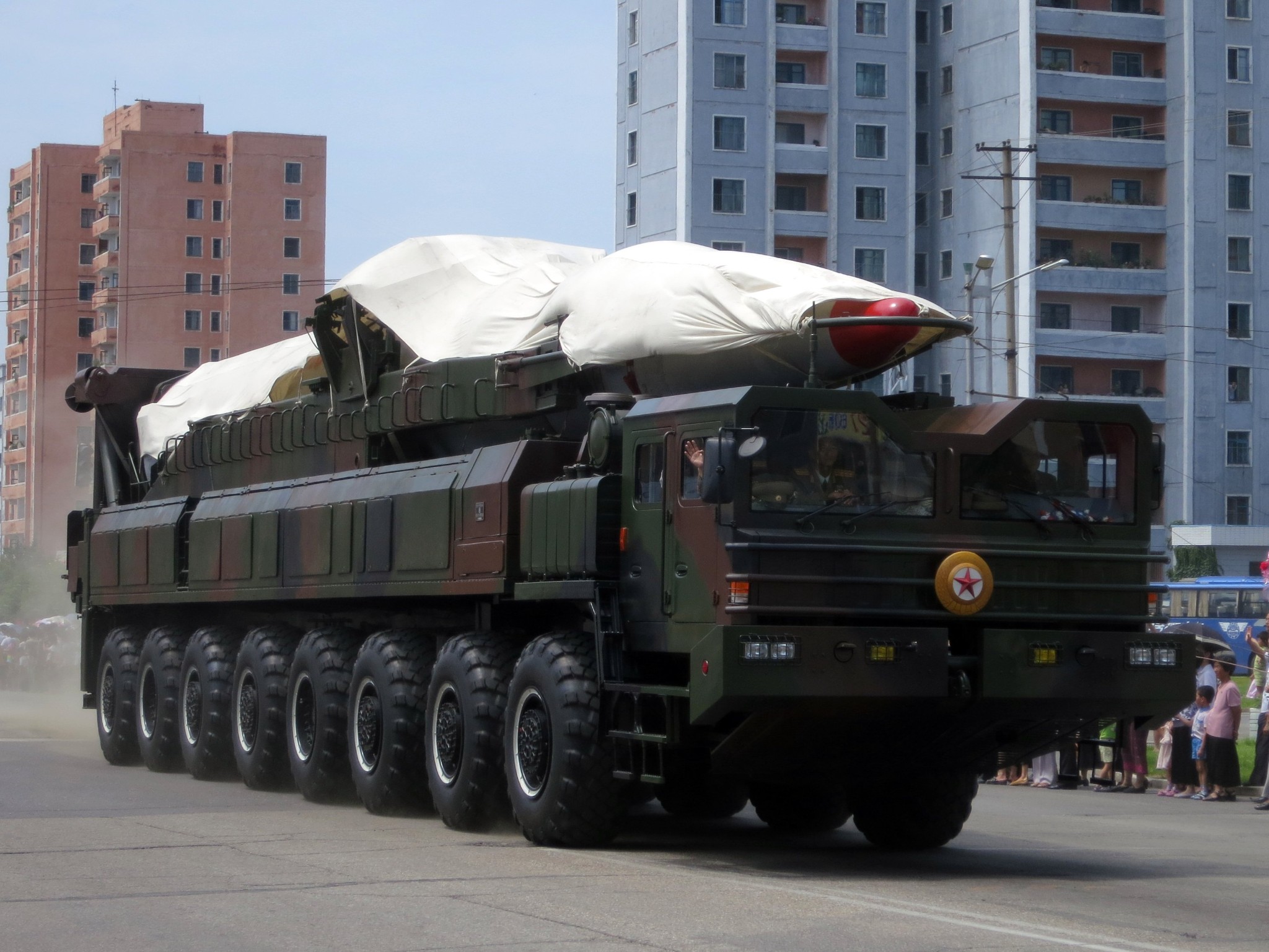 A North Korean Ballistic Missile, Victory Day 2013. Credit: Wikimedia.
A North Korean Ballistic Missile, Victory Day 2013. Credit: Wikimedia.
North Korea’s Repeated Missile Tests: Kim Jong Un’s Real Motives
North Korea has conducted its sixth missile test of the month, expanding on a provocative series of tests that includes two hypersonic missile tests on January 5 and 11. Its first hypersonic missile test was in September 2021. These weapons, if functional, can travel faster than five times the speed of sound (Mach 5), are difficult to intercept, and can reach high-priority targets from great distances. The January 11 test seems to be of a more advanced missile capable of exceeding Mach 10.
Pyongyang’s advanced missile tests appear to demonstrate an interest in developing more effective weapons which pose a threat to the U.S. and its allies, especially to Japan and South Korea. While concerning, this provocative behavior and the tests should be seen as a political instrument and as part of the country’s calculation of showing self-dependence and enhancing its military deterrent. Kim Jong Un’s behavior follows a rational logic that pursues four main objectives.
- Deterrence and self-preservation: North Korea is a relatively weak state that aspires to be recognized as legitimate and as a significant power. However, it is aware of its limits. It knows that it cannot compete with its rivals, either militarily or economically. It feels threatened by South Korea and by the U.S. troops based there, particularly when they conduct joint exercises. Although there are no nuclear weapons in South Korea, South Korea is a U.S. ally and under its nuclear umbrella. From Pyongyang’s perspective, it is necessary to defend itself against a possible U.S.-South Korea invasion. With its nuclear program, the country wants to establish a credible and effective nuclear deterrent. Its goal is self-preservation.
- Regime security: Kim Jong Un not only sees his regime under threat from the outside, but also fears threats from within North Korea. The total isolation of the country, economic hardship, mismanagement, and bad governance pose a great challenge to its leadership. Here, the nuclear weapons program and the repeated missile tests are used to rally the people around the regime’s successes while distracting attention from the ailing economy. In doing so, Kim blames foreign powers for the dire situation and warns of possible future invasions, convincing the people that the country’s survival depends on a united North Korea supporting the regime. This creates a feeling of unity and nationalism which strengthens his power. The fear of a regime collapse determines his political actions. He exercises strong control over the country and does not shy away from using force against its population to achieve his goals. Thus, the country’s priority is regime survival.
- Improving its negotiating position: The nuclear program and the tests are intended to strengthen his negotiating position and provide bargaining chips against sanctions. From North Korea’s perspective, its technical military advancements provide leverage and help the country to gain concessions in any future negotiations about its military program or its political status as an independent country.
- Supplementing an outdated and outclassed military: The country’s nuclear weapons program and the tests are a useful method to distract from the shortcomings of its conventional armed forces, and to provide supplemental capabilities it otherwise lacks. Its arsenal is outdated and its army — while world’s fourth-largest military — is neither well-equipped nor well-trained.
While North Korea routinely tests and provokes, it is unlikely to intentionally start a war as it would not risk a retaliatory attack that threatens the survivability of the regime. Rather, the internationally isolated country wants to appear more dangerous and unpredictable by demonstrating its growing weapons prowess, thereby discouraging any type of action that could threaten its survival.
Regardless of its stated or apparent intentions, Pyongyang’s strategy has already achieved one goal: raising the perceived cost of military action to any would-be attacker. Nevertheless, due to the pressure felt by the severe sanctions, it is interested in a better relationship with the U.S., although not at any price and certainly not when it sees the existence of its regime threatened. It is committed to retaining its nuclear program, which the leadership believes is necessary for its survival. Though more weapons tests are likely to come, North Korea’s actions do not require an immediate response by the U.S.





